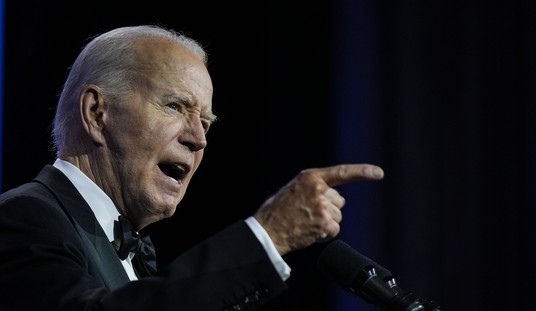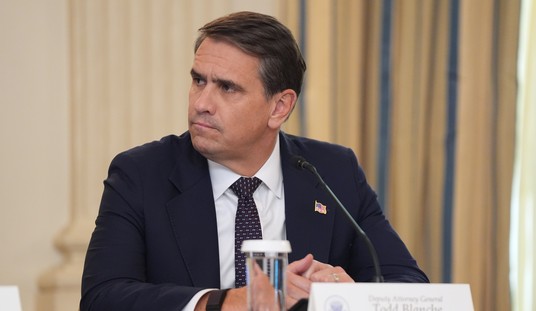When Admiral William Fallon was nominated to replace General John Abizaid as Central Command (CINC), in January 2007, Michael Klare of the Nation interpreted it as an ominous sign of an impending war with Iran. To Klare, the departing Abizaid was the man of peace and Fallon’s appointment could only mean that President Bush had found his hatchet-man to attack Teheran. Klare wrote:
If engagement with Iran and Syria was even remotely on the agenda, Abizaid is exactly the man you’d want on the job at Centcom overseeing U.S. forces and strategy in the region. But if that’s not on the agenda, if you’re thinking instead of using force against Iran and/or Syria, then Admiral Fallon is exactly the man you’d want at Centcom.
The appointment of an admiral to command a theater dominated by two large ground campaigns was so unusual that some surmised a maritime and air operation against Iran was in the works. Jeff Huber, a retired naval aviations officer, wrote that “a conflict with Iran would be a naval and air operation. Fallon is a naval flight officer. … If anybody knows how to run a maritime and air operation against Iran, it’s ‘Fox’ Fallon.”
Fourteen months later Admiral William Fallon’s retirement was perceived as an ominous sign of impending war with Iran. In a complete reversal of the former narrative, it was Fallon who was a man of peace, the diplomat, the dove. And his departure could only mean President Bush was getting rid of his last obstacle to a war on Iran. Stephen Kinzer at the Baltimore Sun wrote on March 12, 2008, that “reality is not what guides the Bush administration. It is still driven by the impulses that led to the Iraq invasion. This means that the world may wake up any morning between now and Jan. 20 to news that U.S. missiles are falling on Iran. Ominously, Adm. William J. Fallon, who had strongly opposed the idea of attacking Iran, announced his early retirement yesterday.”
But many commentators argued that Fallon’s real failure in the eyes of the administration was his inability to serve the cause of diplomacy at a time when force against Iran was probably unrealistic. Max Boot writes “that Fallon’s very public assurances that America has no plans to use force against Iran [will] embolden the mullahs to continue developing nuclear weapons and supporting terrorist groups that are killing American soldiers in Iraq and Afghanistan. … By irresponsibly taking the option of force off the table, Fallon makes it more likely, not less, that there will ultimately be an armed confrontation with Iran.”
The admiral’s so-called role as a firewall against a U.S. adventure in Iran was dramatically played up in an article by Thomas Barnett in Esquire. Barnett wrote that Fallon was “standing up to the commander in chief, whom he thinks is contemplating a strategically unsound war [with Iran] … while … President George W. Bush regularly trash-talks his way to World War III. … It’s left to Fallon — and apparently Fallon alone — to argue that, as he told Al Jazeera last fall: ‘This constant drumbeat of conflict … is not helpful and not useful. I expect that there will be no war, and that is what we ought to be working for. We ought to try to do our utmost to create different conditions.'”
But Fallon himself denies running an independent policy on Iran and gives his inability to play the perception game as the real reason for his resignation. “I don’t believe there have ever been any differences about the objectives of our policy in the Central Command area of responsibility, the simple perception that there is makes it difficult for me to effectively serve America’s interests there. … It would be best to step aside and allow the secretary and our military leaders to move beyond this distraction … and focus on the achievement of our strategic objectives in the region.”
The real reason for Fallon’s resignation may be much more straightforward: disputes over the conduct of ground operations which have resulted in conflicts with General David Petraeus. Barnett’s Esquire article hinted at difficult relations with Petraeus, claiming that Gates appointed Fallon to put the brakes on the general. Barnett wrote, “in fact, any time he talks with Petraeus, there are only two men in the room — the admiral and the general — and their exchanges remain private.”
According to the Wall Street Journal, the key dispute was over troop strength. Fallon wanted to draw down Petraeus’ troop levels in Iraq far faster than his ground commander would agree to. “Senior Pentagon officials — including, we hear, Defense Secretary Robert Gates, Joint Chiefs Chairman Mike Mullen, Army Chief of Staff George Casey, and Admiral Fallon — have been urging deeper troop cuts in Iraq beyond the five ‘surge’ combat brigades already scheduled for redeployment this summer.” But with support for the war in Iraq at a two-year high on the back of a perception that Petraeus’ strategy is working, Fallon’s hand was weakened.
The Washington Times suggests that Fallon has also clashed with other officers over how aggressively forces in Iraq could go after threats to U.S. troops from across the border.
Current and former military officials welcomed the resignation of Navy Adm. William J. Fallon, the top U.S. military commander in the Middle East, saying he failed to prevent foreign fighters and munitions from entering Iraq.
They said “there was no misperception” regarding Adm. Fallon’s “non-warrior” approach to handling foreign involvement in the region.
“The fact is that [Central Command] had the external responsibility to protect our troops in Iraq from the outside and under Fallon they failed to do it,” said retired Maj. Gen. Paul Vallely, a military analyst. “We have done nothing to protect our soldiers from external threats in Iraq.”
It is unlikely that Fallon is being removed in order to clear the decks for an assault on Iran. There are simply not enough ground forces available for an operation of that magnitude. Moreover, Fallon’s successor has not even been named, a situation which would not occur if an Iran attack plan was ready to go. It is far more likely that Fallon was criticized by diplomats for undercutting attempts to bluff Teheran into giving up their nuclear weapons program and that he lost a dispute with America’s most famous general over the conduct of ground operations.
Richard Fernandez writes at the Belmont Club.










Join the conversation as a VIP Member